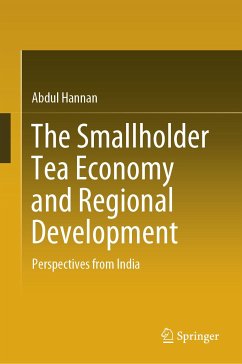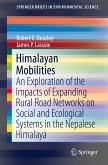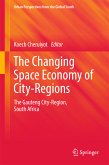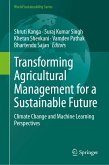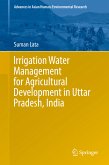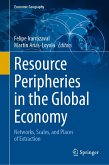This book discusses the smallholder tea economy and regional development opportunities in India. It first gives a conceptual overview of Plantations and Smallholders in the Tea Economy including some comparisons and examples from Smallholders tea development in Afro-Asian countries like Sri Lanka, Kenya, Nepal, Bangladesh, Indonesia. The spatiotemporal analysis of the growth and development of smallholders in India and its tea producing states is then analyzed in more detail with highlights on the production, tea area, estimated employment, livelihood pattern, and market structure in relation to government policies and programmes. Two major tea producing states of India, i.e., Assam and West Bengal are then discussed in more detail (farm size, land relations, and trade relations between Bought Leaf Factories and Smallholders in both the states along with some bottom-up development initiatives). In these regions, smallholders have emerged as sizable presences in the tea industry in 1990s. In a next step, the growth of Industrial Development Cooperative (INDCO) Tea Factories in Nilgiris of Tamil Nadu in the Post-Reform period is analyzed. The introduction and growth of SHG model in plantations by Tea Board in India and their success stories, as well as the policies like Tea Marketing Control Order, 2003 and 2015 are examined and analyzed. The book concludes with the policy suggestions and an in-depth analysis of alternatives to overcome the current crisis.
Hence, the book fills the research gap in the tea sector and is helpful for practitioners, policy planners, academics and University libraries, government agencies, and the regulatory body like Tea Board of India. Apart from them, the book is of great help in Smallholder Tea Associations and Federations, SHGs and Cooperatives, NGOs which exist in tea supply chain and also work for the unorganised sector in India. The book is a conglomerate of information and database developed from various secondary and primary sources and illustrated through case studies. It can be a useful document for better planning, policy making, and strategies for local economic development.
Dieser Download kann aus rechtlichen Gründen nur mit Rechnungsadresse in A, B, BG, CY, CZ, D, DK, EW, E, FIN, F, GR, HR, H, IRL, I, LT, L, LR, M, NL, PL, P, R, S, SLO, SK ausgeliefert werden.

